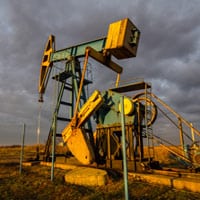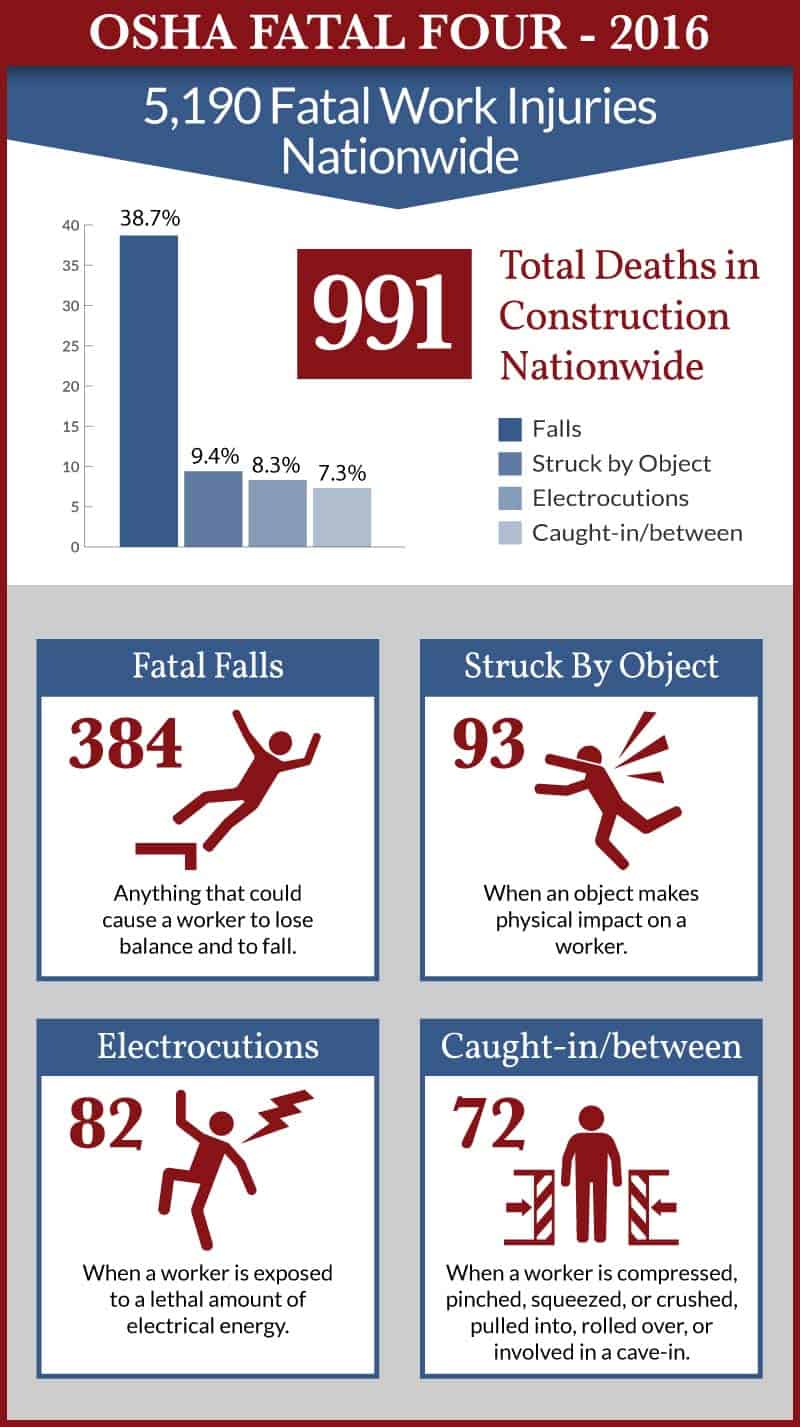Fuel Worker Safety
 The Bureau of Labor Statistics reported that over 150,000 workers were employed in the preparation and shipment of oil and gas extraction in 2018. This industry includes drilling; exploring for natural gas and crude petroleum; equipping wells; gathering lines; production of petroleum; mining and extraction; sulfur recovery; and work with hydrocarbon liquids. The Bureau also gathered data pertaining to work-related injuries and deaths. In 2016, their data showed that for every 100 oil and gas operations full-time workers, there were nine fatalities.
The Bureau of Labor Statistics reported that over 150,000 workers were employed in the preparation and shipment of oil and gas extraction in 2018. This industry includes drilling; exploring for natural gas and crude petroleum; equipping wells; gathering lines; production of petroleum; mining and extraction; sulfur recovery; and work with hydrocarbon liquids. The Bureau also gathered data pertaining to work-related injuries and deaths. In 2016, their data showed that for every 100 oil and gas operations full-time workers, there were nine fatalities.
Factors that contribute to these concerning numbers include pressure from employers to produce efficiently and quickly; long working hours; and increased physical demands on the workers. These all increase the risk of human error and can lead to more workplace accidents. Fuel workers should understand the hazards associated with their jobs and be safety-conscious at all times.
When this industry was in its infancy, worker safety took a backseat to profit margins. Unsafe conditions led to fires, explosions, injuries, and life-threatening diseases. Twenty-first-century safety regulations focus on employee education, cutting-edge equipment, and proper safety gear.
Taking Care of Machinery and Employees
All machinery should conform to OSHA safety standards and should have scheduled maintenance; these can prevent them from failing. This also applies to any motor vehicles used on jobsites. Employees that operate the machinery and drive the vehicles must be properly trained and kept up-to-date with ongoing education and safety programs.
The use of personal protective equipment (PPE) is a must. Every worker should be supplied with and instructed on their use. Work gloves, safety helmets, respirators, boots, and other work gear must be worn when necessary, with no exceptions. Keeping all work areas and pathways clear of debris can also prevent accidents, and they should be checked regularly and at the start and end of every work day.
Safe job sites also utilize clear communication methods to share information about directions, warnings, and safety instructions to workers. Old signs should be replaced; color-coding is also useful.
Fuel Handling Safety
Fuel should be delivered, stored and handled properly every step of the way. When fuel is received on trucks, employees should know not to smoke in the area. The trucks should also be parked a safe distance from any other vehicles, and all fuel caps should be kept closed, unless they are being used for gauging or filling. All fuel containers should be OSHA approved; only the minimum amount required should be stored. Any sources of ignition should be shut down when filling the containers, and employees should avoid breathing in vapors.
Being Prepared for Emergencies
Before work even starts, all employees should be well-versed in emergency protocol. A working relationship with area emergency response teams should be initiated, and ongoing communications should be maintained. Workers should be aware of the safety hazards and know the appropriate steps to take if an emergency occurs. Employees should also be instructed about operating emergency fuel cutoffs and fire extinguishers; chemical and oil spill kits should also be easily accessible.
Philadelphia Workers’ Compensation Lawyers at Freedman & Lorry, P.C. Help Injured Fuel Workers
If you are suffering from any type of job-related illness or injury, you may be entitled to workers’ compensation benefits. Contact the experienced Philadelphia workers’ compensation lawyers at Freedman & Lorry, P.C. to discuss your legal options. Call 888-999-1962 or complete an online contact form for a free case evaluation. Our offices are in Philadelphia, Cherry Hill, New Jersey, and Pinehurst, North Carolina, and we serve clients throughout the surrounding areas and across Pennsylvania.
